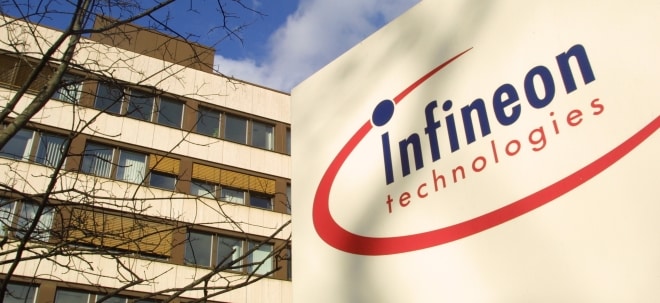Aspen Neuroscience Announces 6-Month ASPIRO Phase 1/2a Clinical Trial Results of Personalized Cell Therapy for Parkinson's Disease
- ANPD001 was well tolerated with no major safety issues in low-dose cohort
- Patients showed early improvements in patient-reported and clinician-reported outcomes
- Detailed Phase 1/2a trial data will be presented this week at IAPRD 2025
SAN DIEGO and NEW YORK, May 7, 2025 /PRNewswire/ -- Aspen Neuroscience has released 6-month data from the first three patients dosed in the ASPIRO Phase 1/2a trial of ANPD001, an investigational autologous dopaminergic neuronal precursor cell (DANPC) therapy being studied in patients with moderate to advanced Parkinson's Disease (PD).
Detailed 6-month data on the first three patients will be presented at this week's IAPRD 2025 conference in NYCAfter recent publication in Parkinsonism and Related Disorders, detailed 6-month data on the first three patients will be presented this week at the 30th World Congress on Parkinson's Disease and Related Disorders (IAPRD 2025), taking place in New York from May 7-10. Aspen Neuroscience Medical Director Avram Fraint, M.D., M.S. will present "Safety, tolerability, and efficacy of intracranial delivery of autologous iPSC-derived dopaminergic precursors in moderate to advanced Parkinson's disease" on Saturday, May 10 during the IAPRD Guided Poster session.
"Parkinson's disease is the second most common neurodegenerative disorder. By the time of diagnosis, most people with Parkinson's have lost the majority of their dopaminergic neurons, leading to progressive loss of motor and non-motor function," said Dr. Fraint. "To date, data from the first three patients in the ASPIRO study show that precision delivery of personalized DANPCs is safe and well-tolerated."
"In this first-of-its-kind study, we are seeing clinician-reported and patient-reported improvements as well as a strong safety and tolerability profile at six months. Importantly, ANPD001 has the unique advantage of not requiring immunosuppression," said Edward Wirth III, MD, PhD, Chief Medical Officer of Aspen Neuroscience.
"We are very encouraged by the ASPIRO study results to date. With more than one million people currently living with Parkinson's disease in the U.S. alone, these data are promising for the Parkinson's community, and for the autologous cell therapy field," said Damien McDevitt, PhD, president and CEO of Aspen Neuroscience.
About the ASPIRO Study
The Autologous-derived Study of a Parkinson's Investigational Regenerative therapy in an Open-label trial (ASPIRO) was launched in 2024 to assess safety and tolerability of ANPD001, an autologous, dopaminergic neuron cell replacement therapy for participants with moderate to advanced PD. It is the first multi-patient, multi-center clinical trial of an autologous cell therapy for PD.
The ASPIRO trial enrolls levodopa-responsive patients 50–70 years of age whose Parkinson's disease duration, motor fluctuations, and "off" time have made oral therapies alone incompletely effective. The trial excluded patients with cognitive impairment and other comorbidities that make them high-risk for an intra-cranial therapy. All enrolled patients are under the care of a movement disorder specialist.
Primary study objectives include assessing safety and tolerability of two sequential escalating doses of ANPD001 as well as the drug delivery procedure. Secondary objectives include the evaluation of clinical efficacy, as measured by change from baseline in patient- and clinician-reported Parkinson's disease-specific outcome measures. This includes improvements in motor symptoms and quality of life based on standard Parkinson's disease rating scales, and improvement in "good on" time, when patients experience periods of good symptom control without medication side effects.
Primary safety and efficacy endpoints will be reported at 12 months, and continued follow up and evaluation will continue for five years. Long-term safety follow-up will continue to Year 15.
Study Procedure and Results
Administration of the DANPCs into the posterior putamen was performed with participants under general anesthesia. Precision dosing of the intended target was enabled using gadoteridol-enhanced intraoperative MRI. These three patients received five million DANPCs per putamen in a single surgical procedure using a custom syringe and cannula.
No hemorrhages nor serious intra-operative or post-operative complications were observed. No graft-induced dyskinesia have been observed. The most common adverse events in the first three patients were incision pain and tongue swelling, the latter of which is related to the prone position during surgery.
At six months there was an average improvement of 45% in the physician-reported MDS-Unified Parkinsons Disease Part III "off" score compared to baseline, and an average improvement of 71% in patient-reported MDS-UPDRS Part II scores. There was an average reduction of 2.0 hours in adjusted "off time," and a 1.5-hour average increase in adjusted "good on" time.
About ANPD001
ANPD001 is the most advanced autologous investigational cell therapy in the United States for treating Parkinson's disease. More information about the Phase 1/2a trial is available at clinicaltrials.gov (NCT06344026).
Aspen's personalized approach means that patients do not require immunosuppressive (IS) drugs to dampen the body's immune response against foreign cells. This approach will eliminate IS-associated adverse events, IS drug-monitoring requirements, and enable dosing for those with contraindications to IS therapies.
Aspen's manufacturing process starts from a small biopsy of the patient's own skin cells, followed by reprogramming to induced pluripotent stem cells (iPSCs) and then differentiation of the iPSCs into DANPCs. These DANPCs are transplanted into the posterior putamen, replacing cells that were lost or damaged due to disease. The quality of each person's cells is assessed at every manufacturing stage using Aspen's proprietary machine learning-based genomics tests.
ANPD001 has received Fast Track designation by the U.S. Food & Drug Administration (FDA).
About Aspen Neuroscience
Headquartered in San Diego, Aspen Neuroscience, Inc. is a clinical development-stage, private company focused on autologous regenerative medicine. The company's patient-derived iPSC platform is used to create personalized therapies to address diseases with high unmet medical needs, beginning with autologous neuron replacement for PD.
Aspen combines cell biology with the latest machine learning and genomic approaches to investigate patient-specific, restorative cell treatments. The company has developed a best-in-class platform to create and optimize pluripotent-derived cell therapies, which includes in-house bioinformatics, manufacturing and quality control. For more information and important updates, please visit https://www.aspenneuroscience.com.
![]() View original content to download multimedia:https://www.prnewswire.com/news-releases/aspen-neuroscience-announces-6-month-aspiro-phase-12a-clinical-trial-results-of-personalized-cell-therapy-for-parkinsons-disease-302448009.html
View original content to download multimedia:https://www.prnewswire.com/news-releases/aspen-neuroscience-announces-6-month-aspiro-phase-12a-clinical-trial-results-of-personalized-cell-therapy-for-parkinsons-disease-302448009.html
SOURCE Aspen Neuroscience, Inc.


